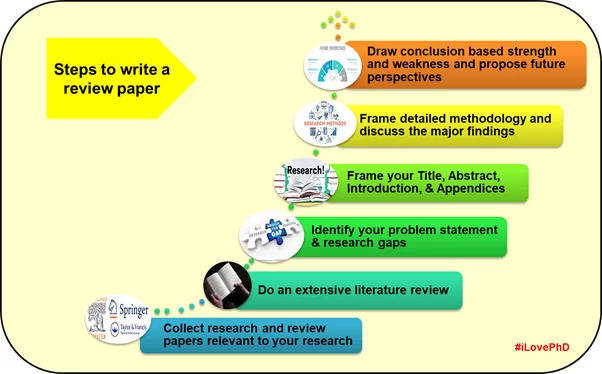In the age of information overload, managing and reviewing large volumes of academic literature is a growing challenge for researchers. Thankfully, AI-powered tools are transforming this process, making it easier to screen, organize, and analyze vast amounts of data. Here, we explore some top AI tools designed to help researchers efficiently screen articles, select pertinent ones, and streamline the literature review process.
—
1. Google’s Document AI: An Intelligent Data Extraction Tool
Google Document AI is a robust cloud-based service designed to extract structured data from unstructured documents, including PDFs. Using advanced machine learning, Document AI helps to identify and categorize key information, making it an excellent tool for managing and analyzing large collections of academic articles.
While Document AI can be integrated with Google Drive, it’s a paid subscription service, available through Google Cloud. Users are billed based on the volume of documents processed, so this tool may be ideal for researchers or institutions managing extensive datasets. Document AI can save hours of manual labor and help you focus on analyzing relevant content.
For more information on Document AI pricing, visit Google’s official pricing page.

—
2. Rayyan: A Tool Built for Systematic Reviews
Rayyan is a widely used tool among researchers, particularly for systematic reviews. It uses AI to streamline the article screening process, making it easier to organize and tag studies based on relevance. Rayyan offers both free and paid plans to accommodate different research needs:
Free Plan: This plan provides up to 3 active reviews, unlimited reviewers, direct Mendeley import, and advanced filtration features. It’s perfect for early-career researchers or those working on smaller projects.
Student Plan ($4.99 per month, billed annually): Designed for enrolled students, this plan offers unlimited mobile app usage, priority support, online training, and additional features like PICO highlights and PRISMA.
Professional Plan ($8.33 per month, billed annually): This plan offers all student features plus unlimited active reviews, making it ideal for advanced researchers handling multiple projects.
Rayyan provides an intuitive, organized workflow that makes it easier for researchers to focus on high-quality studies, especially in systematic reviews. To learn more, visit Rayyan’s pricing page.

—
3. NotebookLM: Google’s Experimental AI for Summarizing Complex Data
NotebookLM, an experimental AI tool from Google, is designed to assist users in synthesizing complex information from various sources. This tool can process PDF files, helping researchers generate summaries, extract key points, and find relevant quotes from their sources. NotebookLM is particularly useful for narrative literature reviews, where you may need quick insights from a range of articles. Although still in the early stages, NotebookLM represents an exciting addition to AI-assisted academic work.
Learn more about NotebookLM on Google’s AI blog.
—
4. IBM Watson Discovery: Leveraging NLP for Research Analysis
IBM Watson Discovery is an advanced natural language processing (NLP) tool that can analyze and extract insights from large collections of unstructured data, such as academic articles. With capabilities like thematic analysis, keyword extraction, and pattern recognition, Watson Discovery is a powerful tool for complex reviews requiring deeper insights. While primarily used by organizations, individual researchers working on substantial datasets may also benefit from this service.

—
5. Semantic Scholar: Intelligent Article Screening with Citation Analysis
Semantic Scholar, developed by the Allen Institute for AI, is a free research tool that utilizes AI to improve article search and screening. It offers features like citation analysis, which helps users identify seminal works and track influential studies. With filters and AI-generated summaries, Semantic Scholar streamlines the process of finding high-impact articles, making it a valuable tool for narrative and systematic reviews.
—
6. Epistemonikos: Specialized in Evidence-Based Health Sciences
For researchers in health sciences, Epistemonikos combines AI with an extensive database of systematic reviews and primary studies, making it easier to locate relevant articles and evidence. Epistemonikos is designed to support evidence-based research, offering a unique interface tailored for medical and health-related systematic reviews.

—
Choosing the Right Tool for Your Needs
Each of these tools offers unique features suited for different research tasks:
For Systematic Reviews: Rayyan and Epistemonikos are highly specialized for health and systematic reviews.
For General Article Screening and Extraction: Google Document AI, IBM Watson Discovery, and Semantic Scholar provide comprehensive capabilities for sorting, organizing, and extracting key data from extensive datasets.
For Summarizing and Quick Insights: NotebookLM and Semantic Scholar are ideal for researchers looking for concise summaries and overviews.
Selecting the right tool depends on the scope of your project, budget, and research requirements. With AI-powered tools, researchers can save valuable time, streamline their workflows, and focus on writing insightful, high-quality reviews.

—
AI technology continues to evolve, bringing exciting possibilities to academic research. Whether you’re conducting a systematic review, synthesizing complex findings, or tracking influential studies, these AI tools can help you achieve greater efficiency and accuracy in your literature review process.
